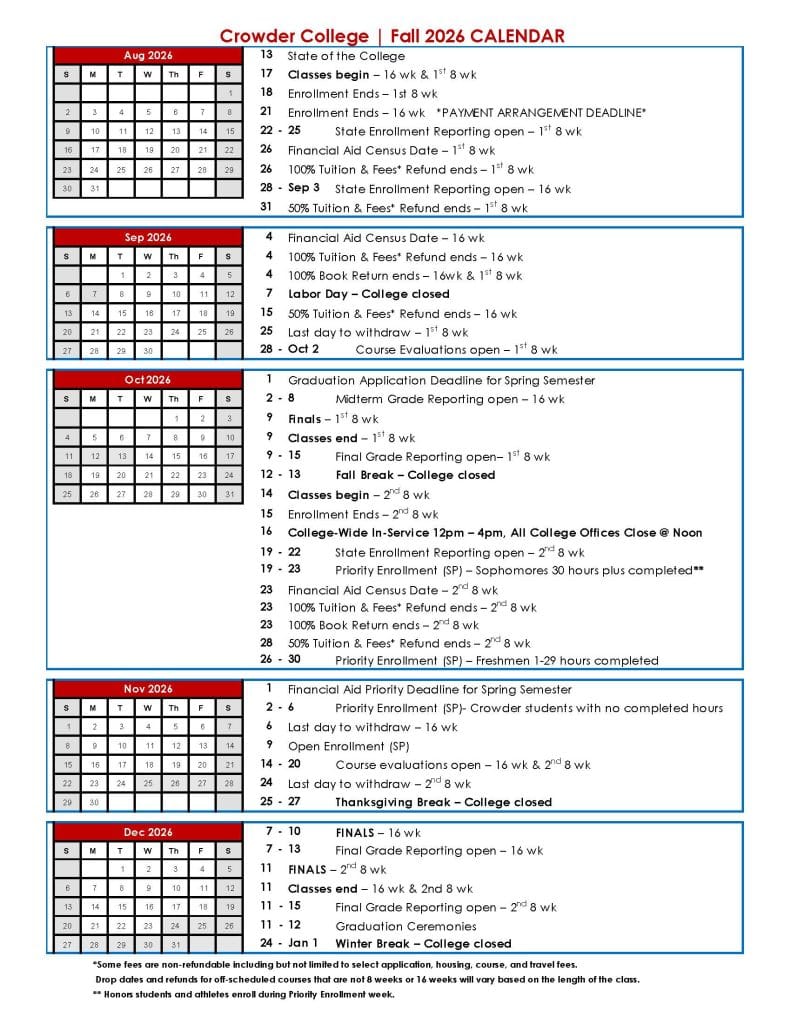As we approach the tax year 2026, it’s crucial to stay ahead of the game by unlocking essential tax strategies. Understanding the intricacies of the tax schedule for 2026 is key to maximizing your savings and ensuring compliance with the latest regulations. In this blog, we will delve into the most effective ways to navigate the evolving tax landscape and make informed decisions for your financial well-being.
Whether you’re a seasoned taxpayer or new to managing your taxes, having a solid grasp of the tax schedule for 2026 can make a significant difference in your financial planning. From deductions to credits, this guide will equip you with the knowledge needed to optimize your tax situation and minimize liabilities.
Join us on this journey as we unravel the complexities of taxes in 2026 and empower you to make informed choices that will benefit your bottom line.
Introduction to Tax Planning
When looking at taxes 2026 schedule planning, tax planning is a crucial aspect to consider. Tax planning involves analyzing your financial situation to ensure all legal tax deductions and credits are utilized effectively to minimize tax liability.
Understanding Tax Planning
Effective tax planning involves strategizing your financial affairs to optimize tax efficiency. This includes managing income, investments, and expenses to reduce tax liability.
It is essential to stay updated on the latest tax laws and changes that might impact your tax planning strategies for the year 2026.
Benefits of Tax Planning
Tax planning not only helps in reducing tax burden but also aids in maximizing after-tax income. It can also assist in achieving long-term financial goals by utilizing tax-saving investment options and retirement plans.
- Maximized Savings: Tax planning can lead to significant savings by taking advantage of deductions and exemptions.
- Financial Security: Proper tax planning can contribute to financial stability and security for the future, especially during retirement years.
Understanding Tax Laws for 2026
As we move into the tax year 2026, it is essential to familiarize ourselves with the updated tax laws and regulations that may impact our financial planning and obligations.
Key Changes in Tax Laws
For the year 2026, several key changes have been implemented in tax laws, affecting various aspects of tax filing and liabilities. Stay informed on the adjustments to optimize your tax strategies.
Updated Tax Deductions and Credits
Review the revised deductions and credits available for the tax year 2026. Ensure you are taking advantage of all eligible deductions and credits to minimize your tax burden. Maximize your savings
2026 Tax Filing Schedule
Plan ahead and familiarize yourself with the tax filing schedule for 2026 to avoid missing important deadlines. Stay organized to prevent any penalties or interest charges for late filing. Be proactive in your tax planning.
Exploring Different Tax Strategies
When it comes to optimizing your taxes for 2026, understanding and implementing various tax strategies is crucial. These strategies can help you minimize tax liabilities and maximize savings, ultimately contributing to financial success.
1. Tax-Advantaged Accounts
One effective strategy is to leverage tax-advantaged accounts such as Individual Retirement Accounts (IRAs) and Health Savings Accounts (HSAs). Contributing to these accounts can help reduce taxable income and grow savings tax-free.
Consider maximizing contributions to these accounts to benefit from compounding growth and potential tax deductions.
2. Tax Loss Harvesting
Another strategy is tax loss harvesting, which involves selling investments at a loss to offset capital gains and reduce tax obligations. This technique can help rebalance your portfolio while minimizing taxes.
Be mindful of wash-sale rules when implementing tax loss harvesting to ensure compliance with tax regulations.
Key Changes in Tax Schedule for 2026
As we look ahead to 2026, understanding the key changes in the tax schedule is crucial for effective financial planning. The tax landscape is continuously evolving, impacting individuals and businesses alike.
Increased Standard Deductions
One notable change is the increase in standard deductions for taxpayers. This adjustment aims to provide relief for individuals by reducing taxable income. It is essential to leverage this benefit when filing taxes for the year 2026.
Shift in Tax Brackets
The tax brackets for 2026 have been adjusted to accommodate inflation and economic conditions. Taxpayers may find themselves in a different bracket compared to previous years, impacting the amount of tax owed. Being aware of these shifts is crucial for effective tax planning.
Additionally, individuals should consider consulting with a tax professional to explore potential strategies for optimizing their position within the new tax brackets. This proactive approach can lead to significant savings.
Tips for Effective Tax Planning
When it comes to managing your taxes for 2026, effective tax planning is crucial to maximize savings and ensure compliance with the latest regulations.
Start Early for Taxes 2026
Begin your tax planning early in the year to allow ample time for strategizing and optimizing your financial decisions.
Utilize Tax-Advantaged Accounts
Consider contributing to tax-advantaged accounts such as 401(k)s, IRAs, and HSAs to reduce your taxable income and grow your savings.
Take Advantage of Deductions and Credits
Identify all eligible tax deductions and credits, including those for education, home ownership, and healthcare expenses, to lower your tax liability.
Maintain Organized Records
Stay organized by keeping track of receipts, financial statements, and important documents throughout the year to streamline the tax filing process.
Maximizing Tax Deductions and Credits
When it comes to managing your taxes in 2026, maximizing tax deductions and credits can significantly impact your financial situation. By taking advantage of available deductions and credits, you can reduce your taxable income and potentially lower the amount you owe to the IRS.
Understanding Tax Deductions
One key strategy is to understand the difference between tax deductions and tax credits. Tax deductions can reduce your taxable income, while tax credits directly reduce the amount of tax you owe. It’s essential to explore all possible deductions to minimize your tax liability.
Common Tax Deductions and Credits
Consider maximizing deductions such as charitable contributions, mortgage interest, and medical expenses. These deductions can add up and make a significant impact on your tax return. Additionally, explore tax credits like the Child Tax Credit or the Earned Income Tax Credit, which can directly reduce your tax bill.
Important Deadlines to Remember
2026 Taxes Schedule Overview
As you plan your tax strategy for 2026, it is crucial to keep track of the important deadlines. Here is a comprehensive guide to help you stay on top of your tax responsibilities:
1. Estimated Tax Payments
One key deadline to remember is the quarterly estimated tax payments. Individuals and businesses are required to make estimated tax payments throughout the year. The due dates for these payments are April 15, June 15, September 15, and January 15 of the following year.
2. Tax Filing Deadlines
The deadline to file your federal income tax return is April 15 of each year. However, if the 15th falls on a weekend or holiday, the deadline is extended to the next business day. Extensions are available if needed, but it is important to pay any taxes owed by the original deadline to avoid penalties.
Tax Season Reminders
During tax season, staying organized and prepared is essential for a smooth filing process. Here are some key reminders to help you navigate the tax season efficiently:
- Keep all relevant receipts and documentation organized.
- Double-check your calculations to avoid errors.
- File electronically for faster processing and confirmation.
Utilizing Tax Software and Resources
When it comes to managing taxes in 2026, leveraging tax software and resources can significantly streamline the process and ensure accuracy. By utilizing advanced software tailored for taxes 2026 schedule, individuals and businesses can navigate through complex regulations with ease.
Maximizing Deductions with Tax Software
Modern tax software applications provide robust tools to help users identify potential deductions and credits. By inputting relevant financial information, the software automatically calculates deductions based on the current tax laws, maximizing savings for taxpayers.Utilizing
Access to Online Tax Resources
Online tax resources offer valuable information and guidance on various tax-related topics. Websites of tax authorities, like the IRS, provide up-to-date forms, publications, and guidelines for accurately filing taxes in 2026. Additionally, reputable financial platforms offer insightful articles and tools to enhance taxpayers’ knowledge.These resources can help individuals stay informed and make informed tax decisions.
- IRS website for tax forms and publications
- Financial platforms for expert insights
- Tax software support resources
Frequently Asked Questions
- What are tax strategies?
- Tax strategies are methods or techniques individuals and businesses use to minimize the amount of taxes they have to pay. These strategies may involve deductions, credits, deferrals, and other tax-saving measures.
- Why are tax strategies important for 2026?
- Tax strategies are important for 2026 as new tax laws and regulations may have come into effect. By understanding the tax laws and efficiently planning your taxes, you can maximize your savings and reduce your tax liability for the year.
- What is a tax schedule?
- A tax schedule is a form attached to your tax return where you report specific types of income or deductions. Different schedules are used for different purposes, such as reporting rental income, self-employment income, or capital gains.
- How can I unlock tax strategies for 2026?
- To unlock tax strategies for 2026, you can start by reviewing your financial situation, understanding the new tax laws, exploring deductions and credits you may be eligible for, and considering retirement account contributions or investment strategies.
- What are some common tax deductions to consider for 2026?
- Common tax deductions to consider for 2026 include deductions for mortgage interest, charitable contributions, medical expenses, student loan interest, and business expenses for self-employed individuals.
Unlocking Tax Strategies for 2026: Your Essential Tax Schedule Guide
Final Thoughts:
As we navigate the intricate world of taxes in 2026, understanding tax schedules is pivotal to maximizing savings and avoiding penalties. By planning ahead and utilizing the right strategies, individuals and businesses can ensure compliance while optimizing their financial position. Remember to stay updated with the latest tax regulations and consult with a professional advisor to tailor your approach to your specific needs. The key takeaways include the importance of organization, timely filing, and leveraging deductions and credits to your advantage. By unlocking the potential of tax schedules, you can set yourself up for a successful and financially sound future.



